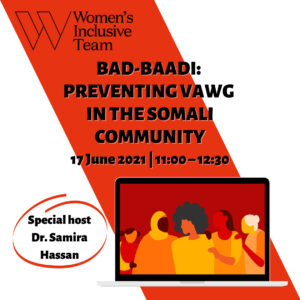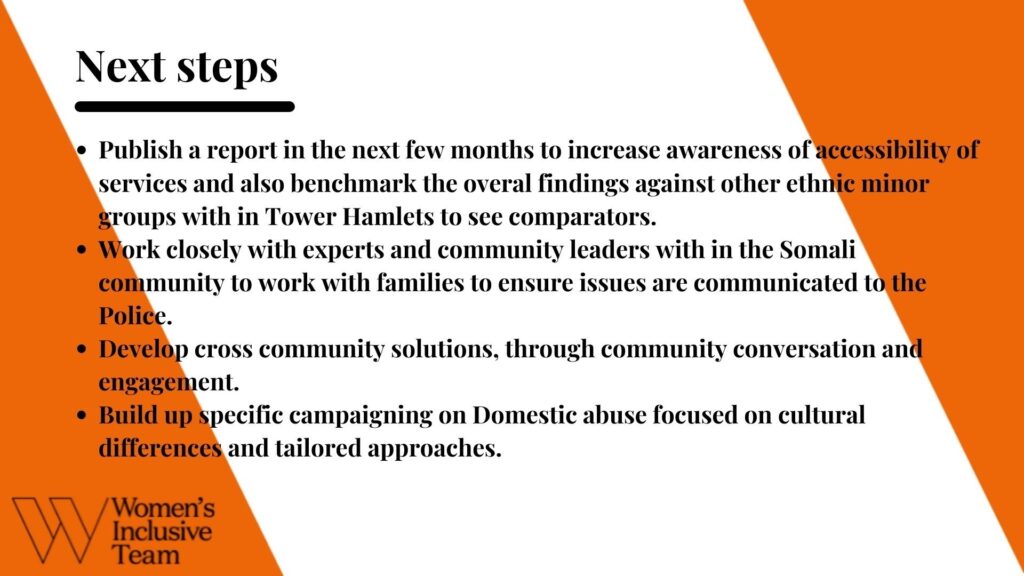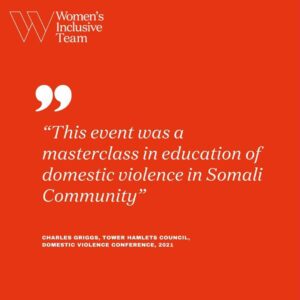
The racism and racial injustices faced by ethnic minority women may have been put at the centre of public discourse through the Black Lives Matter movement, but it is the responsibility of statutory and voluntary sector organisations to meet the specific needs of minoritised communities.
To encourage greater awareness of the hidden and unique challenges Tower Hamlets’ Somali women face, the largest group of Black women in the borough, Women’s Inclusive Team recently brought together 60 local partners and domestic violence stakeholders to educate them about the cultural influences that impact women’s responses to domestic violence, as well as to host an open and robust conversation about how to support victims of domestic violence in this community.
Key areas of discussion during the event:
- The increase in reported incidents of violence against women and girls in the past year among WIT members
- The importance of understanding cultural nuances at play that prevent Somali women and girls from asking for and receiving the help they so desperately need
- A summary of results from WIT’s fact-finding investigation, which includes interviews with survivors of domestic abuse, case studies and a community member survey
- An explanation of the cultural nuances, like tribalism, that strongly influence how domestic violence is treated in the community. Tribal leaders are often the first point of contact if there is an issue related to marriage or the family. Tribes provide a sense of identity and belonging for community members
- Among the members who took the survey, 68% said that if they were experiencing domestic violence, they would first seek help from tribal leaders in the UK or another country before seeking help from authorities like the police
- Testimony from a Somali community member who has experienced prolonged domestic abuse at the hands of her husband
As a Black Somali-led organisation, WIT provided the group with recommendations to encourage greater take-up of support services among Somali domestic violence victims.


Initial feedback from attendees was very positive and suggests that they gained a deeper understanding of the very complex challenges that must be tackled to support Black Somali women.

Recent Comments